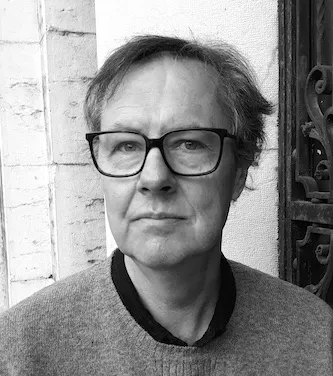Translator John Taylor interviewed about Philippe Jaccottet / The Arts Fuse
- Post By: johntaylor
- Date:
- Category: News
Translator John Taylor has been interviewed on The Arts Fuse about his work with Philippe Jaccottet. An excerpt:
Arts Fuse: Over a lifetime of writing in multiple genres, precision of observation and description was, for Jaccottet, a way of understanding the world. What techniques did you lean on or develop in order to render his nuanced investigation of nature, art, and emotions?

John Taylor: Philippe Jaccottet was a close observer of nature, but something deeper and more essential than perception per se is involved in his literary and philosophical approach. This is the dimension that engaged me from the onset with his oeuvre, when I started reading it, and reviewing it, in the mid-1990s. He outlines this dimension in Ponge, Pastures, Prairies (Black Square Editions), his memoir of his friendship with the poet Francis Ponge, known for his evocations of the “thing-in-itself.” In that book, Jaccottet shows how, over the years, and without losing his affection for the man, his own poetics diverged from those of the author of Partisan of Things. More than an observer, Jaccottet is an incessant questioner of man’s relationship to nature, to the cosmos, to being; and as a consequence of this vantage point, what is at stake in his writings, much more than objective description, is the relationship of the self, and language, to the experience of reality: how to find the right words for a moment experienced suddenly as encompassing an enigma or inducing astonishment.
These rare moments of marvel unexpectedly occur when Jaccottet finds himself in front of, for example, peonies, wild carrots, kingfishers, robins, bindweed, a quince orchard, a cherry tree, and the streams near the village of Grignan, in the south of France, where he lived most of his life. In brief, Jaccottet takes off in a more subjective and philosophical direction, and is driven by a different stylistic imperative, than that explored by Ponge in his poems, “proêmes,” and extensive writings about how he composed them. In contrast, Jaccottet describes and interrogates his “glimpses” of something that fleetingly seems to surpass pure materiality — the “thing-in-itself” — as well as the self. And yet, he cautions almost as soon: illusion might well be involved in these perceptions, creating in him a deceiving impression of transcendence.
Moreover, he characteristically weaves literary allusions and quotations into his prose pieces, which were the first of his texts that I translated — for the volume And, Nonetheless: Selected Prose and Poetry 1990-2007 (Chelsea Editions), published in 2011. He uses the insights of other poets to stimulate his own reflections about what has caught his attention as if by a kind of mysterious “beckoning”—rather like the leitmotiv of the monastery bell in his last book, La Clarté Notre-Dame (Seagull Books). Such are the issues, linking perception, thought, emotion as well as critical reading, and their formulation in scrupulously crafted language, that run through Jaccottet’s texts. The translator progresses slowly through this exacting prose that takes nothing for granted, with its close observation, cogitation, literary references, and subtle soul-searching. When considering how this remarkable sensibility can be rendered into English, one must carefully examine and comprehend why there are numerous verbs in conditional tenses, several forms of negations, sentences with as many as three or four semicolons, words like “perhaps” or “almost” (or one of their synonyms) immediately attenuating what is asserted, and imagistic similes — “like” and “as” crop up frequently — revolving around, or targeting, the subject matter from the periphery. Jaccottet combines these stylistic elements into compelling narratives of his quest.
Laisser un commentaire